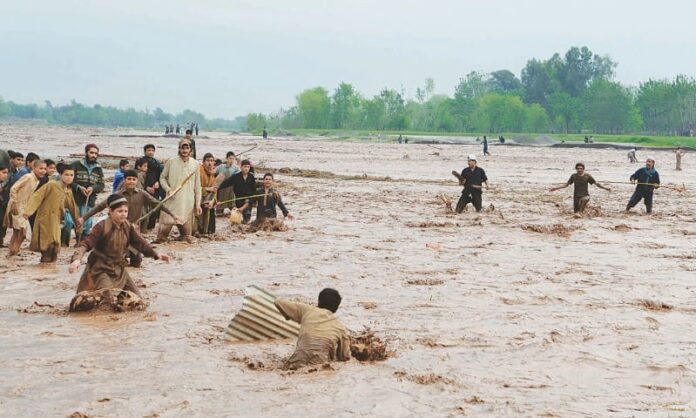Psychological First Aid is crucial for mitigating the adverse impacts of the climate crisis on the survivors and persons witnessing or surviving humanitarian disasters
33 million people have been displaced due to the worst floods in Pakistan. Pakistan, already in political and economic turmoil, has been thrust onto the front lines of the human-caused climate crisis.
When disasters affect a region, it not only faces educational, social, and financial crises but is also followed by psychological crises which is the most neglected aspect. Mental health has always been the least considered issue in Pakistan. Most of the efforts done for the rehabilitation of the affectees are physical and financial which later fade out in the crucial phase.
Psychological First Aid (PFA) is one of the vital tools in delivering psychological interventions to those who have undergone or experienced traumatic events. Traumatic experiences during natural calamities can induce a significant amount of stress. Mental health complications arise if timely and effective psychological intervention is not given to the survivors.
As highlighted in international journals, flood affectees who have no signs of any prior mental illness show symptoms of psychological distress after three months. Soon after the euphoria of surviving wanes and the emergency settles, the survivors start experiencing Post-Traumatic Stress Disorder (PTSD), survivors’ guilt, depression, and anxiety. Additionally, those people who are displaced as a result of floods also face adjustment issues.
Psychological First Aid (PFA) is based on the model, RAPID. It provides the core content of the training available to enhance the preparedness of the survivors for traumatic or emergencies that can alter one’s behavior during such experiences.
Reflective listening is the ability to utilize active listening techniques to establish and determine the vital aspects of the survivor’s experience.
Assessment entails determining the necessity of exploring the survivor’s capacity in terms of mental or behavioral functioning through binary answers. Further, it involves assessing the dimensional factors likely to facilitate or pose limitations to adaptive functioning and recoveries like understanding and following directions.
Prioritization, a step after determining the patient’s functional needs, is essential in guiding the intervention plan, especially the acute intervention plan where physical, psychological, and behavioral reactions are hindered. Also, the ability of survivors to perform daily necessary activities gets determined under prioritization
Intervention is a vital step that comes after addressing the medical and physical needs of the patient. It helps in reducing acute distress by providing stress management techniques. This step is indispensable in facilitating the patient’s emotional and behavioral recovery by assuring the patient, thus enabling the survivor to regain self-control by mitigating panic.
Disposition is the final procedure that involves determining whether the survivor restores functional capacities for engaging in daily basic and routine activities.
Training in PFA is crucial in ensuring the availability of individuals capable of providing the necessary psychological intervention in the event or climate crises. Moreover, PFA training ensures the population’s preparedness for potential emergencies that can induce traumatic experiences and severe impacts absent timely intervention. Disaster can leave more people with psychological consequences compared to the number of people with various physical injuries. The potential millions of individuals left with psychological injuries necessitate numerous professionals with adequate training to intervene in promoting the resiliency of those affected by the emergency or disaster. Considering the severity of the situation there is a dire need for psychological first aid for the affectees of climate disasters.




